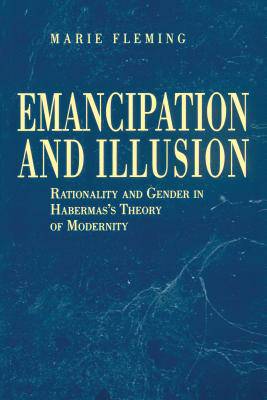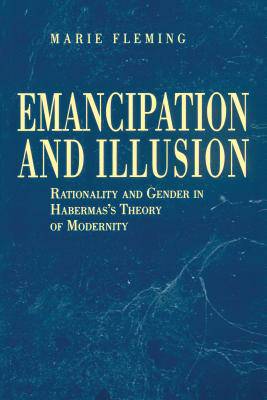
- Retrait gratuit dans votre magasin Club
- 7.000.000 titres dans notre catalogue
- Payer en toute sécurité
- Toujours un magasin près de chez vous
- Retrait gratuit dans votre magasin Club
- 7.000.0000 titres dans notre catalogue
- Payer en toute sécurité
- Toujours un magasin près de chez vous
Emancipation and Illusion
Rationality and Gender in Habermas's Theory of Modernity
Marie FlemingDescription
In this comprehensive analysis of Jürgen Habermas's philosophy and social theory, Marie Fleming takes strong issue with Habermas over his understanding of rationality and the lifeworld, emancipation, history, and gender. Throughout the book she focuses attention on the various ways in which an idea of emancipation motivates and shapes his universalist theory and how it persists over several major changes in methodology. Her critique of Habermas begins from the view that universalism has to include a vision of gender equality, and she asks why Habermas, despite deeply held concerns about equality and inclusiveness, repeatedly and systematically relegates matters of gender to secondary status in his social and moral theory. She extends her critique to a range of issues in his theory of rationality and examines what she views as his very problematical claims about truthfulness, art, and bourgeois intimacy.
The point of Fleming's critique of Habermas is not to dispute universalism, but to build on the key universalist principles of inclusiveness and equality. She is not persuaded by the view, shared by both sympathizers of Habermas and his postmodern critics, that to be for or against Habermas is to be for or against universalism. Her intention rather is to show that Habermas's theory of modernity is so structured that it cannot achieve its universalist aims. Contending that his theory is not universalist enough, she claims that universalism has to be reconceived as a radical, critical, and historical project.
Spécifications
Parties prenantes
- Auteur(s) :
- Editeur:
Contenu
- Nombre de pages :
- 252
- Langue:
- Anglais
Caractéristiques
- EAN:
- 9780271025629
- Date de parution :
- 15-04-97
- Format:
- Livre broché
- Format numérique:
- Trade paperback (VS)
- Dimensions :
- 152 mm x 229 mm
- Poids :
- 371 g

Les avis
Nous publions uniquement les avis qui respectent les conditions requises. Consultez nos conditions pour les avis.






